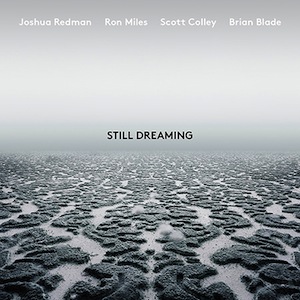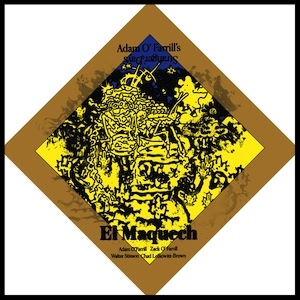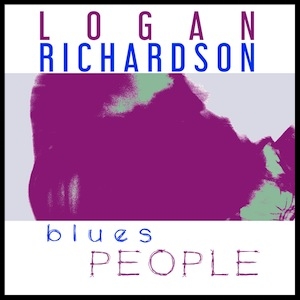Label: Nonesuch Records, 2018
Personnel - Joshua Redman: tenor saxophone; Ron Miles: cornet; Scott Colley: double bass; Brian Blade: drums.
After fruitful collaborations with The Bad Plus (2015) and Brad Mehldau (2016), virtuoso saxophonist/composer Joshua Redman releases his long-awaited studio album in the company of established cohorts Ron Miles on cornet, Scott Colley on bass, and his first choice drummer, Brian Blade.
Redman’s inspirations for Still Dreaming were his father and the avant-garde jazz quartet Old and New Dreams, whose members included Dewey Redman, Don Cherry, Charlie Haden, and Ed Blackwell, all former sidemen of groundbreaking altoist Ornette Coleman. Hence, it comes as no surprise that the two covers on the album, Ornette’s “Comme Il Faut” and Haden’s untrammeled “Playing”, give us a wonderful taste of that generation. The former is tackled with reverence, unity, and a new feel, while the latter features impromptu interchanges between saxophone and cornet, a productive dialogue underpinned by the bowed bass. Once the drummer becomes active, the tune falls into a combustible pulse driven by a great sense of locomotion.
Colley contributes two compositions: the elated opener, “New Year”, is evocative of the band they got inspiration from, providing a disrupted folk-inflected melody in the A section and an ephemeral swinging flow in the B, as well as eight-bar trades between the bassist and the drummer, consolidating their unpretentious rhythmic communication. In turn, “Haze And Aspirations” is an affable, rhythmically brushed 3/4 piece introduced by unaccompanied bass and suffused with parallel moves, occasional counterpoint, and melodious statements.
Redman’s “Blues For Charlie” may be considered a chant, whose melody, first expressed by a solitary saxophone, is gradually thickened with bass and cornet in crescent unisons. With greater dynamics comes “Unanimity”, a grooving enchantment conceived by the bandleader who dives eloquently into his neo-bop versatility. On the contrary, Miles is never rushed, often using easy melody and notable motifs to give a clear-cut testimony.
Culminating the colorful sonic mosaic is the “The Rest”, initially a folkish, rubato piece that veers to a frank, emotional dialogue before invoking Ornette’s “Lonely Woman” in a razor-sharped finale. Built with earnestness, the foundation has Colley plucking and bowing while Blade mixes brushes and mallets for a wider tonality.
Simple structures, complex emotions; Still Dreaming emanates passion for another musical era and Redman, besides talking from the heart in his ear-catching improvisations, strengths the repertoire with an indefatigable sense of collectivity.
Grade A-
Favorite Tracks:
02 - Unanimity ► 03 - Haze And Aspirations ► 06 - Playing








































